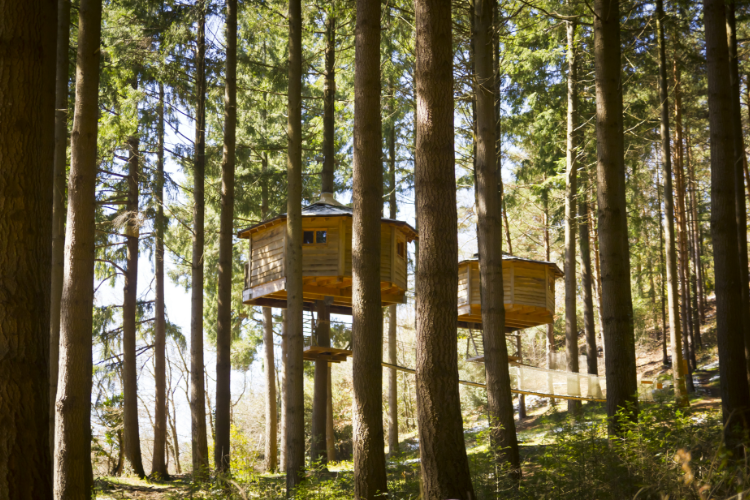The School of Tourism and Hospitality Management Sant Ignasi has launched the first edition of “Community Based Eco-Tourism”, an online course commissioned by Jesuit Worldwide Learning (JWL).

The School of Tourism and Hospitality Management Sant Ignasi has launched the first edition of “Community Based Eco-Tourism”, an online course commissioned by Jesuit Worldwide Learning (JWL) and attended by 21 students from Thailand.
In this interview, Esther Binkhorst, coordinator of the training project in ecotourism, tells us about the keys to the course and its context.
What is Jesuit Worldwide Learning and how has it worked with HTSI?
JWL is an international Jesuit organization that provides “Higher Education at the Margins’’; in other words, training for individuals and communities who are marginalized because of poverty, their location, a lack of opportunities, conflicts or forced displacement. HTSI coordinated and taught a course on ecotourism for Thai students.
What challenges did you face?
A project of these dimensions always involves plenty of challenges. For example, developing a collaborative course: creating the content with six different authors from HTSI and coordinating it with JWL and students from the pilot group in Thailand. Creating the contents for an online course wasn’t easy, either.
Plus, this course is part of the program “Higher Education at the Margins”; that means that access to the internet and sources of information like books or articles isn’t easy.
Another communicative and cultural challenge is understanding and interpreting the way Thai students express themselves. It’s hard enough to understand local students, but this requires even more intercultural skills.
Tell us more about the cultural diversity of the project.
With long-distance training, JWL facilitates the connection between people from different parts of the world—in this case, HTSI professors in Barcelona (many of whom are from different countries) and students from northern Thailand, from the Chiang Rai and Chiang Mai region.
The educational materials don’t just include international examples. They include cases from Europe, Spain and Barcelona, which help Thai students have a more global vision of the world. Learning from participants in the course is enriching for both Thai students and HTSI professors. Of course, it can also be frustrating, since the cases aren’t always applicable to their context.
Ecotourism as a sustainable road to emancipation
Why ecotourism?
At HTSI, ecotourism plays a big role in both educational programs and in the research and projects organized by the Chair of Responsible Tourism.
The “Community Based Eco-Tourism” course includes the vision and characteristics defined by the World Tourism Organization for ecotourism. It offers students a basic understanding of tourism and ecotourism so they can apply that knowledge to a new project in their community.
What are the contents of the course?
Tourism and ecotourism basics, cocreation and design in the provision of products and services, marketing and promotion, and business plans.
You teach all that in just six months?
Yes. From October 2020 to March 2021. Each week we complete the content and learning exercises for a new unit, along with an evaluation activity. We use HTSI’s evaluation system, since students will receive a certificate from the School of Tourism and Hospitality Management Sant Ignasi.
This course is based on Ignatian pedagogy, isn’t it?
It applies the mission of the Society of Jesus: through this program, people are being trained to be responsible professionals who act compassionately and can contribute to a new world of justice, love and peace in their own context. In their community, they can renew the social, economic and political ecosystem; and above all, they can do so from a human perspective.
All these Ignatian principles can be applied to any field of learning, but I think they’re especially applicable to the development of ecotourism in each student’s local context. Not only is this about respecting each individual as a human being, it’s also about each person’s context; in other words, their family, community, culture and natural setting—the pillars of ecotourism.
What’s the next step? New courses? New students?
This first edition is a pilot group. With the experience we gain, we plan to tweak some parts of the course before launching a second edition with the students who have already expressed an interest in the program. JWL is expanding the network of universities and professors that can contribute to the ecotourism course coordinated by HTSI, so that more students can enjoy it and apply their knowledge to ecotourism in their communities.










